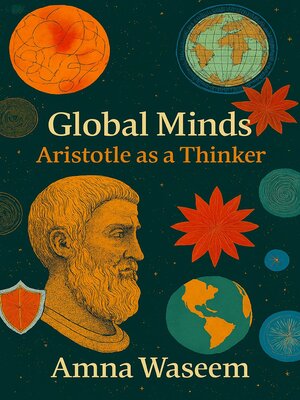Global Minds
ebook ∣ Aristotle as a Thinker: Political Science, #2 · Political Science
By Amna Waseem

Sign up to save your library
With an OverDrive account, you can save your favorite libraries for at-a-glance information about availability. Find out more about OverDrive accounts.
Find this title in Libby, the library reading app by OverDrive.



Search for a digital library with this title
Title found at these libraries:
| Library Name | Distance |
|---|---|
| Loading... |
Book Description
Global Minds: Aristotle as a Thinker is Volume 2 in the acclaimed Global Minds series, continuing the intellectual journey begun in Volume 1, which explored the visionary idealism of Plato. This installment turns to Aristotle—Plato's most brilliant student and philosophical counterpoint—whose grounded realism and empirical rigor laid the foundation for political science as we know it.
This volume offers a comprehensive and accessible guide to Aristotle's political philosophy, tracing his early life, his role as tutor to Alexander the Great, and his enduring legacy as a systematic thinker. Readers will explore Aristotle's views on the origin and nature of the state, the functions of government, the rule of law, and his classification of constitutions. The book also delves into his controversial positions on slavery, property, and citizenship, contrasting them with Plato's utopian ideals.
Through clear chapters and structured analysis, Global Minds: Aristotle as a Thinker reveals how Aristotle's emphasis on moderation, civic virtue, and empirical observation shaped centuries of political thought—from medieval scholasticism to Enlightenment constitutionalism. Discussion questions at the end of the book invite readers to reflect on Aristotle's relevance to modern governance, justice, and civic life.
Whether read independently or as part of the Global Minds series, this volume offers a rich and nuanced portrait of a philosopher whose ideas continue to influence political discourse across cultures and eras.







